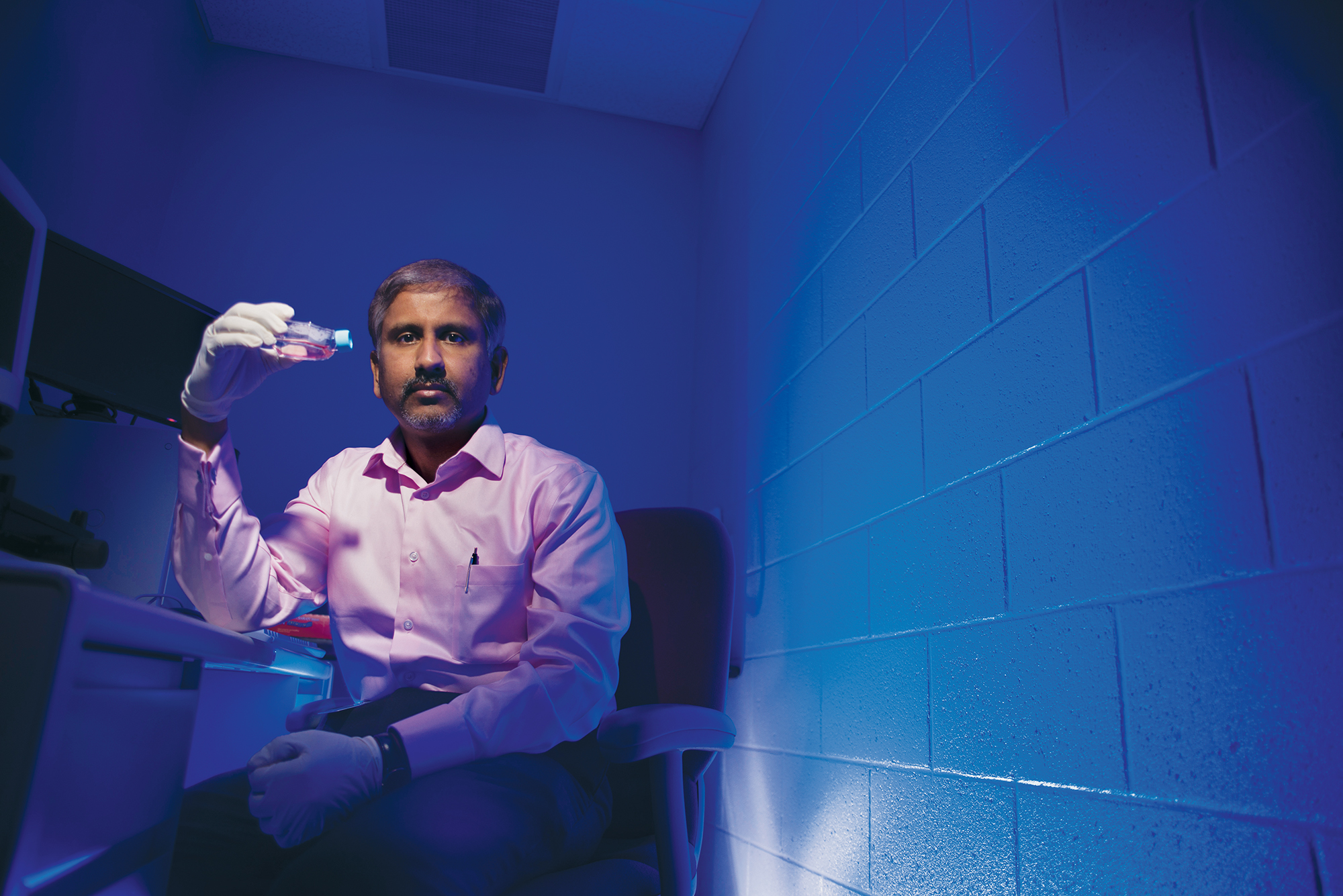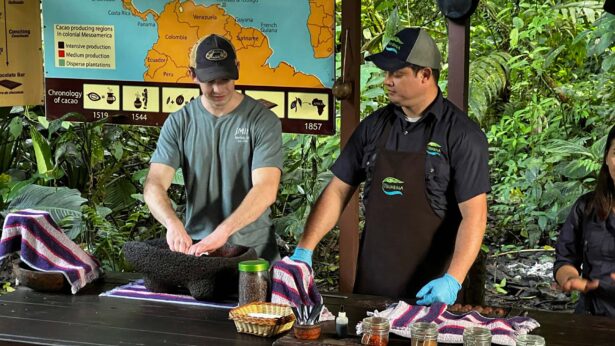By Peggy Reisser Winburne. Photo by Adam Brimer
Ramesh Narayanan and Gustavo Miranda-Carboni are hot on the trail of cancer, and they think the University of Tennessee Health Science Center (UTHSC) in Memphis is the best place to be to beat it.
The two researchers came to UTHSC in 2014, drawn by a unique collaboration they believe will help turn the possibilities of research into real advances toward a cure.
Narayanan, an associate professor of hematology and oncology and an adjunct professor of pharmaceutical sciences, and Miranda-Carboni, an assistant professor of hematology and oncology, are part of an innovative partnership built on UTHSC’s reputation of research excellence.
With the West Clinic’s 35-year legacy of cancer care in the Mid-South and the Methodist Le Bonheur Healthcare system’s record for exceptional clinical care, the three entities came together in 2012 to create what is now called the West Cancer Center, which joins basic scientists and translational or bench-to-bedside researchers with clinicians to provide the best in cancer treatment, research and training.
Think of it this way; clinicians from West and Methodist are working with scientists and researchers from UTHSC on the front lines of the war against cancer in the Mid-South, nation and the world.
“The cancer center collaboration is one of shared vision and commitment to share resources,” says Dr. Lee Schwartzberg, chief of the Division of Hematology and Oncology at UTHSC and medical director of the West Cancer Center. “Our goal is to create a nationally renowned destination cancer center providing the best of cancer clinical care, translational research and education.”
Approximately 60 researchers are working in the Cancer Research Building at UTHSC to develop new drugs and therapies for various kinds of cancer. Construction is underway on a $30 million renovation to a building on Wolf River Boulevard, where Memphis meets Germantown. It will house the West Cancer Center’s clinical treatment facilities, administrative offices and research trial venues.
“Our efforts over the first few years of our alliance have been remarkable, and we have full confidence in continuing to attract the best and brightest, so no Mid-South cancer patient has to leave home to receive state-of-the-art treatment of his or her disease with a patient-centered approach,” Schwartzberg says. “West Cancer Center has committed millions of dollars in seed funding to bring in laboratories working in cancer research to Memphis and is in the midst of a philanthropic effort to ensure continued funding for years to come.”
In January, West Cancer Center announced the establishment of the University of Tennessee/West Institute for Cancer Research, a not-for-profit organization dedicated to raising funds for adult cancer research and the development of novel cancer treatments and therapies. The first major gift, a $2.5 million donation from the Plough Foundation, provided the seed money for a Translational Drug Discovery and Development Center of Excellence. Other centers of excellence will focus on cancer immunotherapy, women’s cancers and community outcomes.
“I would say this is the best example of the clinicians and the translational researchers coming together to advance the vison of developing new drugs for the benefit of the patient population, to understand the mechanism of diseases and to understand in more depth how cancers are developed,” says Narayanan, who directs the Center for Cancer Drug Discovery at UTHSC and is working to discover and develop new therapeutics for breast cancer, ovarian cancer and prostate cancer.
Besides drawing cancer researchers to the city, the partnership has expanded clinical trials, increased oncology fellowships and advanced genetic testing to support individualized treatment. Another benefit, Narayanan says, is that surgeons are able to help obtain cancer tissue specimens for use in research labs.
“Gone are the days when all the research was dependent on cell lines established 30 or 40 years ago,” he says, adding that patients are enthusiastic about contributing to the research. “We are developing so many models from multiple patients to understand why these patients got the cancer in the first place and all the genetic changes that are taking place and whether any of the experimental drugs we are working on can reduce the cancer in the models.”
Miranda-Carboni is researching the signaling pathways associated with metastasis in triple negative breast cancer, a highly aggressive cancer that more often affects African-American women. He said he was attracted by the opportunity at UTHSC to work with clinicians and scientists to address health disparities affecting women at high risk of developing this type of cancer.
“Many of us in the cancer center are wholeheartedly committed to conducting translational cancer biology, and we want to actually have our work impact the bedside with the doctor’s help,” he says. “I think we are making inroads with the collaborative effort.”



